
Carolyn Gramling is the Earth & Climate writer at Science News. Previously she worked at Science magazine for six years, both as a reporter covering paleontology and polar science and as the editor of the news in brief section. Before that she was a reporter and editor at EARTH magazine. She has bachelor’s degrees in Geology and European History and a Ph.D. in marine geochemistry from MIT and the Woods Hole Oceanographic Institution. She’s also a former Science News intern.

Trustworthy journalism comes at a price.
Scientists and journalists share a core belief in questioning, observing and verifying to reach the truth. Science News reports on crucial research and discovery across science disciplines. We need your financial support to make it happen – every contribution makes a difference.
All Stories by Carolyn Gramling
-
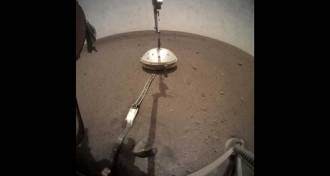 Planetary Science
Planetary ScienceNASA’s Mars InSight lander may have the first recording of a Marsquake
NASA’s InSight mission appears to have detected a Marsquake for the first time.
-
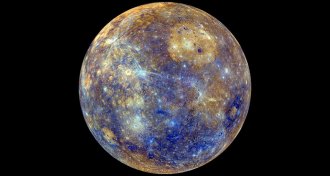 Planetary Science
Planetary ScienceMercury has a massive solid inner core
The distribution of Mercury’s mass and small stutters in the planet’s spin suggest it has a giant solid inner core.
-
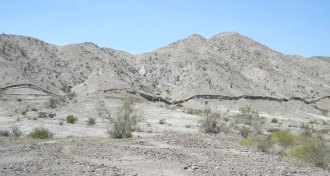 Earth
EarthMore than a million tiny earthquakes revealed in Southern California
By putting millions of tiny quakes on record, scientists hope to learn more about what triggers the big ones.
-
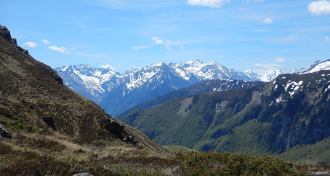 Climate
ClimateTiny microplastics travel far on the wind
Airborne bits of plastic that originated in cities ended up in pristine mountains at least 95 kilometers away, a study finds.
-
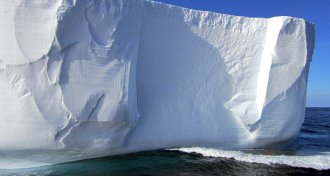 Climate
ClimateAntarctica’s iceberg graveyard could reveal the ice sheet’s future
Drilling deep into the seafloor beneath Antarctica’s “Iceberg Alley” could reveal new clues about how quickly the continent has melted in the past.
-
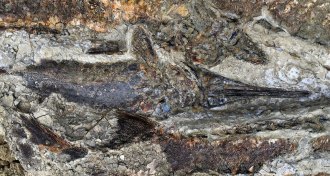 Paleontology
PaleontologyNew fossils may capture the minutes after the dinosaur-killing asteroid impact
North Dakota fossils may depict the aftermath of the dinosaur-killing asteroid, but controversial claims about the breadth of the find are unproven.
-
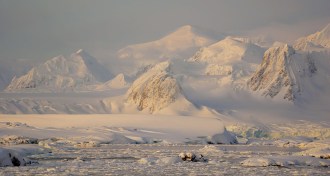 Climate
ClimateOne Antarctic ice shelf gets half its annual snowfall in just 10 days
Antarctica’s coasts get most of their snow from just a few big storms each year.
-
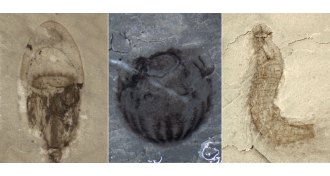 Paleontology
PaleontologyNewfound fossils in China highlight a dizzying diversity of Cambrian life
A new treasure trove of Cambrian fossils in China dating to 518 million years ago could rival Canada’s Burgess Shale.
-
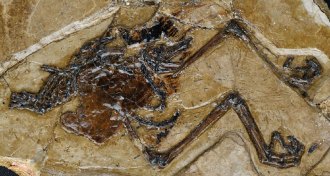 Paleontology
PaleontologyIn a first, a fossilized egg is found preserved inside an ancient bird
Scientists have found the first known fossil of a bird that died with an unlaid egg inside its body. The egg has been crushed by pressure over time.
-
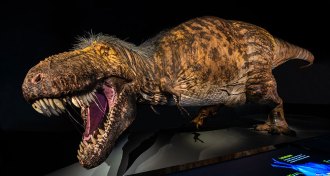 Paleontology
PaleontologyA new T. rex exhibit takes a deep dive into the iconic dinosaur
“T. rex: The Ultimate Predator,” a new exhibit in New York City, draws on the latest science to provide a fresh look at Tyrannosaurus rex and its relatives.
-
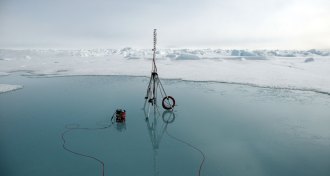 Climate
ClimateWhat happens when the Bering Sea’s ice disappears?
Record-low sea ice in 2018 sent ripples through the Bering Sea’s entire ecosystem. Will this be the region’s new normal?
-
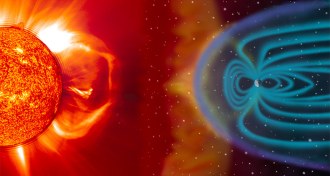 Astronomy
AstronomyOne of the strongest known solar storms blasted Earth in 660 B.C.
Ice cores and tree rings reveal that Earth was blasted with a powerful solar storm 2,610 years ago.